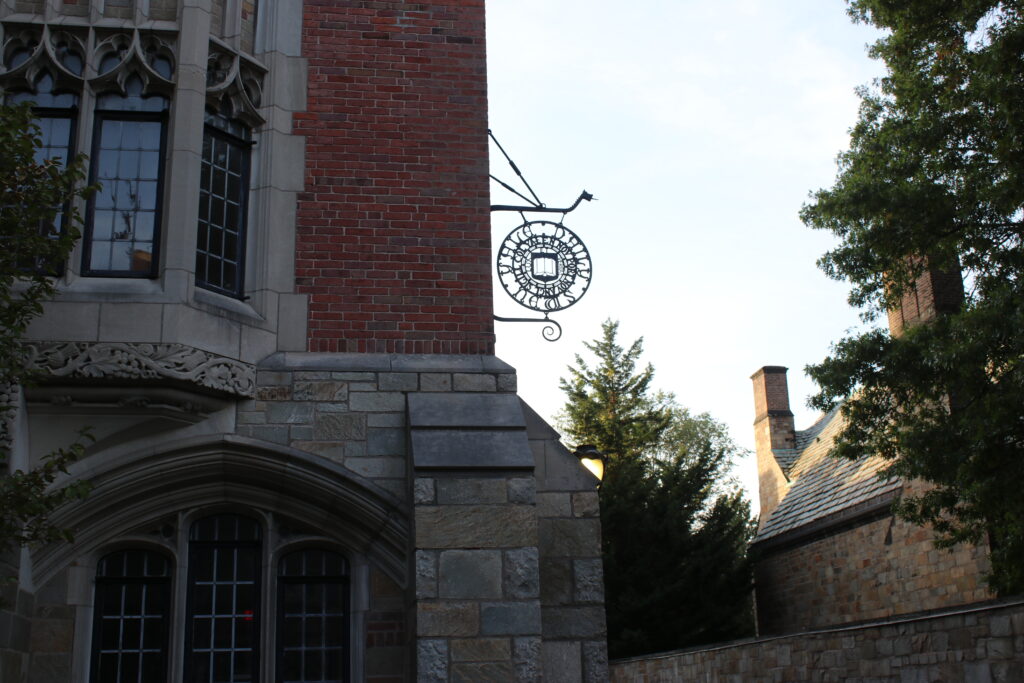The Yale Daily News has joined an amicus brief in support of Stanford University’s student newspaper, which is involved in a lawsuit against the Trump administration. The legal action challenges the use of a federal immigration law that allegedly suppresses political speech among international students, including student journalists. This brief, filed on August 6, 2023, was endorsed by 44 student newspapers and 11 newsroom leaders across the United States.
The brief asserts that the detention of international students whose political expressions are viewed as threatening to U.S. foreign policy has produced a chilling effect on student journalism nationwide. It was prepared by the Student Press Law Center, a nonprofit organization focused on legal advocacy for student journalists.
Matthew Cate, a board member of the center and author of the brief, emphasized its significance during a phone interview. “What our brief does is show the court and the world that this issue is bigger than one newsroom or one arrest or one deportation,” he stated. “This issue is being played out all across the country with devastating impact, and we need to demonstrate… what the ramifications are of its decision.”
The editor-in-chief of the Yale Daily News, Ariela Lopez, noted that international students at Yale are increasingly hesitant to engage with the publication. “Independent student journalists are responsible for recording the news of the day on and around campus,” she explained. “When international students are deterred from sharing their perspectives… our ability to fulfill that responsibility is compromised.” Lopez added that the decision to sign the brief was made by the News’ Executive Committee, which oversees the nonprofit operations of the publication.
The lawsuit filed by Stanford Daily names Marco Rubio, Secretary of State, and Kristi Noem, Secretary of Homeland Security, as defendants. It claims that the administration has violated the First and Fifth Amendments by initiating deportation proceedings against international students based on their political speech.
The complaint highlights that international student writers at Stanford have begun self-censoring due to fears stemming from the detention of three students who publicly opposed Israel’s actions in Gaza. The students, Mahmoud Khalil and Mohsen Mahdawi from Columbia University and Rümeisa Öztürk from Tufts University, were detained after voicing their opinions. Consequently, instances of self-censorship have included avoiding coverage of pro-Palestinian protests and discussions about the Gaza conflict.
In its response, the U.S. government argued that the plaintiffs lack standing, asserting their claims are based on speculative injuries. Attorneys for the government maintained that Congress has broad discretion in matters concerning foreign policy and student visa holders.
The brief signed by student newspapers and editors argues that the federal government’s actions undermine the fundamental pro-democratic values that student publications instill in both citizen and non-citizen journalists. Notably, the main student newspapers from seven of the eight Ivy League institutions, excluding the Columbia Daily Spectator, have signed the brief. Other participating publications have reported decreased participation from international students and increased requests for anonymity in articles.
The Associated Collegiate Press and the College Media Association also joined in support of the brief. Colin McDonell, a lawyer representing the plaintiffs from the Foundation for Individual Rights and Expression, remarked on the importance of the amicus brief. He noted that the united front of student news organizations like the Yale Daily News illustrates that the chilling effect on speech is a widespread issue, affecting student newspapers throughout the country.
The Stanford Daily, originally founded as The Daily Palo Alto in 1892, continues to pursue its legal challenge, aiming to protect the rights of student journalists and the integrity of the press on college campuses.
